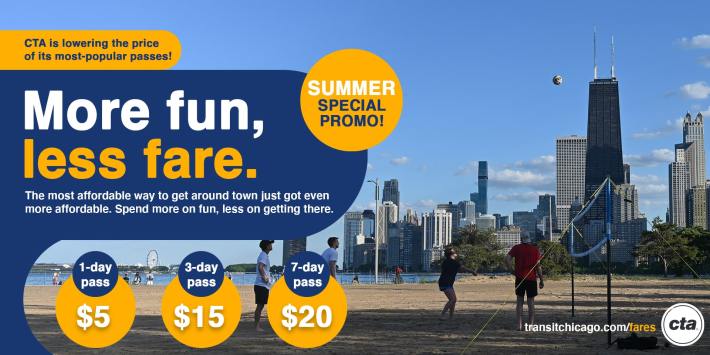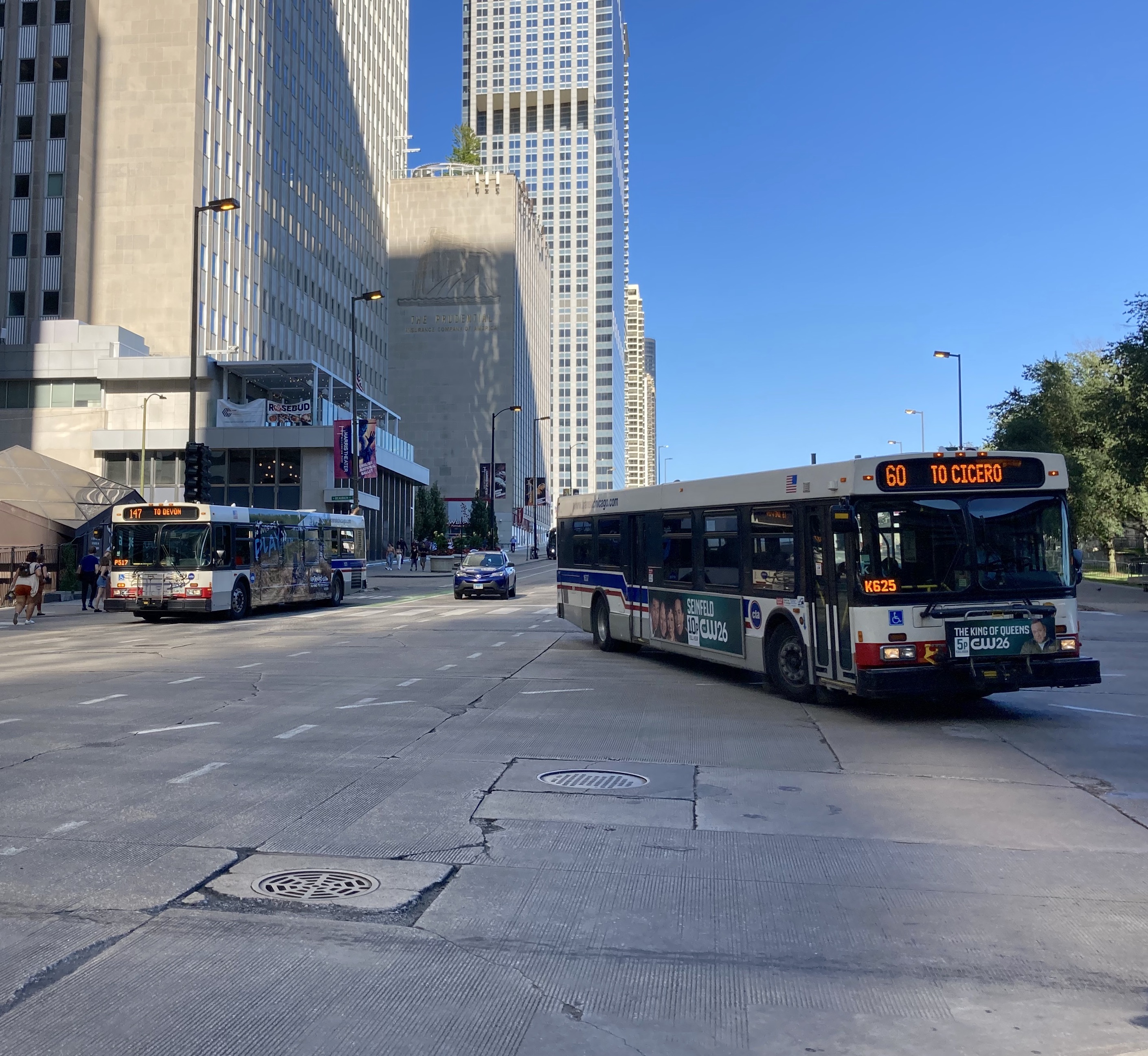Necessity really is the mother of invention. In response to steep drops in ridership during the COVID-19 pandemic, local transit agencies have introduced new and discounted pass options in an effort to coax people back onto buses and trains as society reopens.
As Streetsblog reported in late June, Metra's All-Day Pass was so successful that it was extended more than 12 months beyond its original expiration data.
Now there's good news about the CTA's "More Fun, Less Fare" promotional pass discounts as well. The agency is crediting the sale with spurring a nearly 70 percent increase in average ridership among pass users. Last month, the CTA extended the promotion, which started Memorial Day weekend, to November 25. The agency says 10 million rides have been taken using the three types of unlimited-ride passes.
Under the discounts, with the 1-Day Pass, you can ride all day for the cost of one round-trip 'L' fare ($5, down from $10 before the promotion.) The 3-Day Pass ($15, down from $20) is intended for weekend travel or employees working flexible days. And with the 7-Day Pass ($20, down from $28), customers pay less than $3 per day for unlimited rides for the week and the weekend.

Unsurprisingly, the discounted 1-Day Pass, which represents a whopping 50-percent savings over the usual price, saw the highest-percentage growth in use compared to pre-pandemic use, increasing by more than 300 percent compared to the week before the start of the sale. It's also no surprise that the discounted 1-Day pass was very popular in low-income communities and neighborhoods of colors, where normal transit fares are more likely to make up a higher percentage of residents' budgets than in wealthier, whiter parts of town.
The 3-Day and 7-Day discounted passes also saw increased use. Weekly rides by customers using the 3-Day and 7-Day passes increased by 44 percent and 75 percent, respectively, compared to before the discount kicked in.
The cheaper fares have also been influencing customers travel habits. The CTA found that since the start of the discounts, customers who switched from pay-per-ride to an unlimited-ride pass increased their ridership by nearly 70 percent, on average. Riders who switched to a promotional pass increased their ridership from 36 rides on average in the seven weeks before the the discounts start to and average of 59 rides on average in the seven weeks after. Meanwhile, customers who kept using pay-per-use didn't change their habits much.
Obviously if customers are taking lots of rides via an unlimited ride pass, that's not generating any more revenue for the CTA than if they took fewer rides using the same pass. But if some of those additional rides are replacing private car, taxi, or ride-hail trips, that's good for congestion, air quality, and traffic safety. And if the passes are encouraging people to take more convenient transit trips that they previously would have forgone due to cost – for example catching a train rather than taking a cheaper, slower bus ride; or taking a short bus trip in lieu of walking – that's good for residents' quality of life.
The CTA says pass sales also helped attract riders back to the system and encouraged existing riders to ride more often. The agency conducted an online survey on the discounted passes. 43 percent of respondents said they rode much more frequently with the pass and 20 percent said that the pass got them back on buses and trains, period.
The agency credits the promotional passes with helping to move ridership back towards normalcy as more people return to in-person work and recreation. Systemwide ridership is currently averaging 770,000 rides on weekdays, about half of the pre-pandemic average weekday ridership of 1.6 million trips.
The discounted passes are available at Ventra machines at 'L' stations, on the Ventra app, on the Ventra website, at more than 1,000 retail outlets, or by calling Ventra customer service at (877) NOW-VENTRA (669.8368).




